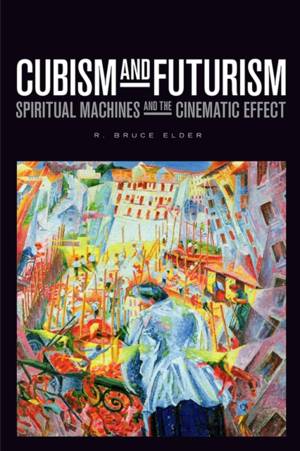
Bedankt voor het vertrouwen het afgelopen jaar! Om jou te bedanken bieden we GRATIS verzending (in België) aan op alles gedurende de hele maand januari.
- Afhalen na 1 uur in een winkel met voorraad
- Gratis thuislevering in België vanaf € 30
- Ruim aanbod met 7 miljoen producten
Bedankt voor het vertrouwen het afgelopen jaar! Om jou te bedanken bieden we GRATIS verzending (in België) aan op alles gedurende de hele maand januari.
- Afhalen na 1 uur in een winkel met voorraad
- Gratis thuislevering in België vanaf € 30
- Ruim aanbod met 7 miljoen producten
Zoeken
Omschrijving
Cubism and futurism were related movements that vied with each other in the economy of renown. Perception, dynamism, and the dynamism of perception--these issues passed back and forth between the two. Cubism and Futurism shows how movement became, in the traditional visual arts, a central factor with the advent of the cinema: gone were the days when an artwork strived merely to lift experience out the realm of change and flow.
The cinema at this time was understood as an electric art, akin to X-rays, coloured light, and sonic energy. In this book, celebrated filmmaker and author Bruce Elder connects the dynamism that the cinema made an essential feature of the new artwork to the new science of electromagnetism. Cubism is a movement on the cusp of the transition from the world of standardized Cartesian coordinates and interchangeable machine parts to a Galvanic world of continuities and flows. In contrast, futurism embraced completely the emerging electromagnetic view of reality. Cubism and Futurism shows that the notion of energy made central to the new artwork by the cinema assumed a spiritual dimension, as the cinema itself came to be seen as a pneumatic machine.Specificaties
Betrokkenen
- Auteur(s):
- Uitgeverij:
Inhoud
- Aantal bladzijden:
- 591
- Taal:
- Engels
- Reeks:
Eigenschappen
- Productcode (EAN):
- 9781771122450
- Verschijningsdatum:
- 30/06/2018
- Uitvoering:
- Hardcover
- Formaat:
- Genaaid
- Afmetingen:
- 155 mm x 231 mm
- Gewicht:
- 1156 g

Alleen bij Standaard Boekhandel
+ 205 punten op je klantenkaart van Standaard Boekhandel
Beoordelingen
We publiceren alleen reviews die voldoen aan de voorwaarden voor reviews. Bekijk onze voorwaarden voor reviews.









